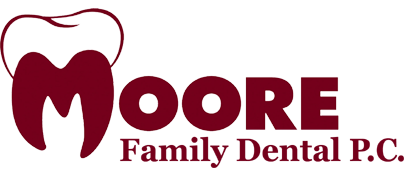
Your mouth, teeth, and gums are more than just tools for eating. They’re essential for chewing and swallowing—the first steps in the digestion process. Your mouth is your body’s initial point of contact with the nutrients you consume. So what you put in your mouth impacts not only your general health but also that of your teeth and gums. In fact, if your nutrition is poor, the first signs often show up in your mouth. Here are a few helpful things to know about how what you eat can impact your dental health.
Diet and Tooth Decay
The foods you eat and the beverages you drink can have a direct influence on the incidence and progression of tooth decay, depending upon:
- The form of the food—whether it’s liquid, solid, sticky or slow to dissolve makes a difference.
- How often you eat sugary foods and beverages and how often you eat or drink acidic foods and beverages.
- The nutritional makeup of the food.
- The combination of the foods you eat and the order in which you eat them.
- Medical conditions you may have, such as gastrointestinal reflux and eating disorders, which can increase risk of cavities and weaken teeth.
How Snacking Affects Your Dental Health
For dental health, it’s recommended that people limit eating and drinking between meals. Of course, sometimes eating between meals must happen. Unfortunately, most people choose foods like sweets and chips for snacks; foods that harm teeth by promoting tooth decay. If you do snack, make it a nutritious choice—such as cheese, yogurt, fruits, vegetables or nuts—for your overall health and the health of your teeth. Did you know that certain foods can put you at risk for cavities and other dental health problems? Here are some MouthHealthy tips.
Foods That Harm Your Dental Health
Empty calorie foods such as candy (especially hard or sticky candies like lollipops, mints, taffy and caramel), sweets like cookies, cakes and muffins, and snack foods like chips are a cause for dental concern, not only because they offer no nutritional value, but because the amount and type of sugar that they contain that can adhere to teeth. The bacteria in your mouth feed off these sugars, releasing acids, and that’s what leads to tooth decay.
Sugar-containing drinks—soda, lemonade, juice and sweetened coffee or tea (iced or hot)—are particularly harmful because sipping them causes a constant sugar bath over teeth, which promotes tooth decay. Learn more about the potentially harmful oral health effects of drinking acidic and sugary drinks here from the Indiana Dental Association’s Drinks Destroy Teeth.
Nutritious, acidic foods like tomatoes and citrus fruits can have acidic effects on tooth enamel, too, so eat them as part of a meal, not by themselves. Dried fruits, including raisins, are also good choices for a healthy diet, but since they are sticky and adhere to teeth, the plaque acids that they produce continue to harm teeth long after you stop eating them. Opt for a piece of fresh fruit instead.
Foods That Benefit Dental Health
Cheese, milk, plain yogurt, calcium-fortified tofu, leafy greens and almonds, are foods that may benefit tooth health thanks to their high amounts of calcium and other nutrients they provide. Protein-rich foods like meat, poultry, fish, milk and eggs are the best sources of phosphorus. Both of these minerals play a critical role in dental health, by protecting and rebuilding tooth enamel.
Fruits and vegetables are good choices for a healthy smile since they are high in water and fiber, which balance the sugars they contain and help to clean the teeth. These foods also help stimulate saliva production, which washes harmful acids and food particles away from teeth and helps neutralize acid, protecting teeth from decay. Plus, many contain vitamin C (important for healthy gums and quick healing of wounds) and vitamin A (another key nutrient in building tooth enamel).
Hands down, water—particularly fluoridated water—is the most tooth-friendly beverage.
How Sugar Substitutes Affect Your Teeth
Sugar substitutes may look and taste like sugar but they don’t promote decay-causing acids in your mouth that can harm teeth. There are many types of sugar substitutes, including aspartame, erythritol, saccharin, sucralose, isomalt, sorbitol, acesulfame potassium and mannitol. You might recognize some of these names from ingredient lists on food packages, or know some of them by their brand names (Splenda, Equal and Sunett).
4 Ways to Reduce Your Risk of Cavities
- Brush your teeth twice a day for two minutes to remove sugars and food particles from your teeth.
- Limit between-meal snacking.
- Keep added sugar in your diet to a minimum by making wise food and beverage choices.
- Include dairy, plenty of fruits and vegetables, and water in your diet—they all play a role in your dental health.



